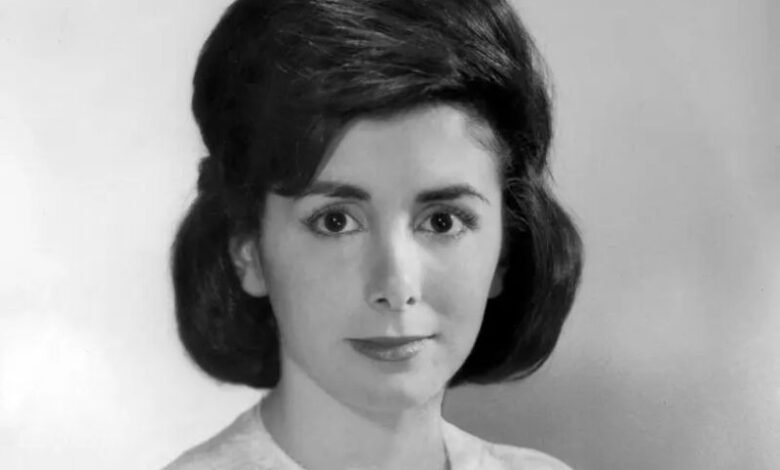Nancy Pelosi Young: Political Roots of a Trailblazer
Nancy Pelosi Young: Political Roots of a Trailblazer

Nancy Patricia D’Alesandro Pelosi stands as one of the most powerful and influential figures in modern American politics. Known for her decades-long leadership in Congress, Pelosi’s path to power did not begin in Washington’s marbled halls but in the bustling streets of Baltimore’s “Little Italy.” Her youth was marked by a deep immersion in family, faith, and politics — three forces that shaped her character, leadership style, and unwavering determination.
This article explores Nancy Pelosi’s early life in rich detail: her childhood, education, family background, early political exposure, and the values that prepared her to become the first woman to serve as Speaker of the United States House of Representatives.
Early Life and Family Background
Birth and Childhood in Baltimore
Nancy Patricia D’Alesandro was born on March 26, 1940, in Baltimore, Maryland, to one of the city’s most politically prominent families. She was the youngest of six children — and the only daughter — born to Thomas D’Alesandro Jr. and Annunciata “Nancy” Lombardi D’Alesandro.
Baltimore in the 1940s was a city of tightly knit ethnic neighborhoods, and the D’Alesandro home was right in the heart of the Italian-American enclave known as Little Italy. The family’s house was a constant hub of political activity — campaign meetings, phone calls, and visitors seeking favors or assistance from her father, who was both a U.S. Congressman and later Mayor of Baltimore.
Growing up in such an environment meant politics was not an abstract idea for young Nancy — it was a living, breathing reality. Her childhood home had a small notebook, famously called the “favor file,” where her mother kept records of constituents’ requests — everything from jobs to housing. These experiences gave Nancy an early lesson in the power and responsibility of public service.
The D’Alesandro Family Legacy
Her father, Thomas D’Alesandro Jr., was a charismatic and ambitious Democratic politician. He served in Congress from 1939 to 1947 before becoming Baltimore’s mayor from 1947 to 1959. Known affectionately as “Tommy the Elder,” he was a devoted supporter of President Franklin D. Roosevelt and New Deal policies, deeply believing in the Democratic Party’s promise to uplift working families.
Her mother, Annunciata “Big Nancy” D’Alesandro, was no less influential. She was an Italian immigrant who became a formidable force in local politics — organizing women, managing campaign logistics, and helping constituents. Her mother’s activism profoundly shaped young Nancy’s understanding of women’s political power long before feminism became mainstream.
Nancy later reflected that her mother was her “first political teacher.” Observing her parents, she learned both the strategic side of politics (from her father) and the empathetic, community-driven side (from her mother).
Childhood Influences and Early Political Exposure
Life in a Political Household
It was not uncommon for the D’Alesandro children to answer the phone and hear someone asking for “Mayor D’Alesandro” or a request for political help. Visitors — from ordinary citizens to party leaders — came in and out of the family home daily.
Young Nancy watched, listened, and absorbed the rhythms of governance and campaigning. When campaign season arrived, she would help her father by folding flyers, stuffing envelopes, and recording voter data. At an age when most children were playing in the park, Nancy was already learning how to count votes and build coalitions.
This upbringing instilled in her two essential qualities: a deep respect for the power of government to serve people, and a tenacious sense of discipline.
Faith, Education, and Values
Raised in a devout Roman Catholic household, Nancy’s early years were shaped by religious discipline and moral guidance. The D’Alesandros believed strongly in community service, charity, and perseverance.
She attended the Institute of Notre Dame, an all-girls Catholic high school in Baltimore known for academic rigor and moral instruction. Her teachers encouraged leadership and critical thinking — qualities Nancy embraced fully.
Her education at Notre Dame laid a foundation for her later success: confidence, eloquence, and a sense of duty. She was bright, hardworking, and determined, showing an early interest in debates and public speaking.
After graduating in 1958, she pursued higher education at Trinity College in Washington, D.C., earning a Bachelor of Arts in Political Science in 1962. During her time at Trinity, the nation was undergoing significant transformation — the Civil Rights Movement was gaining momentum, and a new wave of youthful optimism was spreading under President John F. Kennedy’s leadership.
Pelosi admired Kennedy deeply. His emphasis on civic responsibility — “Ask not what your country can do for you, ask what you can do for your country” — resonated with her upbringing and influenced her sense of purpose.
The Making of a Political Mind
Lessons from Her Parents
Pelosi’s parents were her earliest role models in leadership. Her father’s skill in navigating Baltimore’s political machine taught her the value of organization and persistence. He was known for remembering names, faces, and personal details — an ability Pelosi would later replicate masterfully as she built alliances in Congress.
Her mother, on the other hand, demonstrated resilience and self-belief in an era when women were rarely recognized as political forces. “Big Nancy” was an organizer in her own right, advocating for women’s participation in local politics. She dreamed of running for office but never had the opportunity. Pelosi often cited her mother’s unfulfilled ambitions as one of her greatest motivators to break political barriers for women.
Early Understanding of Power and Responsibility
From childhood, Pelosi saw firsthand that political power was a tool for service, not self-promotion. The D’Alesandro household’s open-door policy taught her empathy and attentiveness.
She once recalled that her father would sometimes take her along to city events or ceremonies, introducing her to public service early. Watching him comfort struggling families or celebrate local successes made her realize that leadership involved more listening than talking.
These lessons became the cornerstone of her leadership philosophy: representation, responsibility, and results.
Transition to Adulthood and Early Marriage
College Years and Expanding Horizons
At Trinity College, Nancy D’Alesandro was known for her charm, intellect, and strong political opinions. She participated in student government and political clubs, developing her ability to organize, communicate, and lead.
Her exposure to Washington, D.C. — the heart of American politics — also expanded her horizons. She attended speeches, debates, and events that exposed her to national issues. By graduation, she had developed a clear sense of her political identity: progressive, pragmatic, and people-focused.
Marriage to Paul Pelosi
After graduating in 1962, Nancy married Paul Pelosi in 1963. Paul was a business student at Georgetown University who would later become a successful financier and real estate investor.
The couple initially lived in New York, where Paul pursued business ventures, but soon moved to San Francisco, California, where they would raise five children. Though Nancy’s life during these early years centered around family, her passion for politics never dimmed.
In her 20s and 30s, she managed to balance her roles as mother and community volunteer — a challenging task in the 1960s when women’s careers often took a back seat to domestic duties.
Early Political Involvement in California
Community and Party Work
When the Pelosis settled in San Francisco, Nancy began volunteering for the Democratic Party. California at the time was a hotbed of progressive politics, with figures like Phil Burton leading the state’s Democratic resurgence.
She quickly earned a reputation as a meticulous organizer and effective fundraiser. Her early volunteer work included coordinating campaigns, hosting events, and mobilizing women voters.
By the 1970s, Pelosi had become a significant behind-the-scenes force in California Democratic politics. Her leadership within local and state committees gradually expanded her influence and network.
The Foundation for a Future Career
Though she had not yet sought office, Pelosi’s youth and early adulthood were a training ground for her future political leadership. She mastered the practical skills of campaigning, coalition-building, and strategic planning long before she ever appeared on a ballot.
In 1976, she helped organize California’s Democratic National Convention efforts for presidential candidate Jimmy Carter, further solidifying her credentials as a capable political operator.
Her rise was not accidental — it was the culmination of years of observation, learning, and engagement that began in her Baltimore childhood home.
Values That Defined Her Youth
Throughout her youth, several enduring values took shape within Pelosi’s character:
- Service: Inspired by her father’s public work and her mother’s community service.
- Discipline: A trait reinforced by her Catholic upbringing and large family.
- Empathy: Born from her exposure to citizens’ everyday problems at home.
- Resilience: Strengthened by witnessing her mother’s unrecognized political potential.
- Courage: The determination to lead in a male-dominated environment.
These principles would later define her leadership in Congress, especially her ability to manage complex political dynamics and advocate for progressive change while maintaining strategic discipline.
A Look at Nancy Pelosi’s Early Life Timeline
| Year | Milestone |
|---|---|
| 1940 | Born in Baltimore, Maryland |
| 1947–1959 | Her father serves as Mayor of Baltimore |
| 1958 | Graduates from Institute of Notre Dame |
| 1962 | Earns degree in Political Science from Trinity College |
| 1963 | Marries Paul Pelosi |
| 1969 | Moves to San Francisco, California |
| 1976 | Organizes Democratic efforts for Jimmy Carter campaign |
| 1981 | Becomes California Democratic Party chairwoman |
Nancy Pelosi’s Early Development Curve
Political Exposure → Education → Leadership Training → Civic Involvement → National Recognition
(1940s–50s) (1950s–60s) (1960s) (1970s) (1980s)
This curve shows how her early environment evolved from passive observation of politics in childhood to active leadership roles in adulthood — setting the stage for her historic entry into Congress in 1987.
Legacy of Her Youth
Pelosi’s youth cannot be separated from her later achievements. The lessons she learned from her family’s public service, her religious discipline, and her exposure to the struggles of working-class Americans gave her a moral and political compass that guided her throughout her career.
Her journey from a young girl in Baltimore’s Little Italy to one of the most powerful women in Washington reflects not only ambition but preparation — decades of understanding people, power, and perseverance.
Comparing Nancy Pelosi’s Early Political Roots with Other Leaders
While Nancy Pelosi’s early life was shaped by the urban Democratic landscape of Baltimore, her trajectory shares fascinating parallels with leaders across the political spectrum — including Liz Cheney, Hillary Clinton, Alexandria Ocasio-Cortez, and Margaret Thatcher.
Like Pelosi, Liz Cheney grew up in a political family; her father, Dick Cheney, served as Vice President and held key roles in Republican administrations. Both women inherited their understanding of politics not from textbooks but from family dinner conversations, campaign trails, and witnessing power up close. Their ideologies, however, diverged sharply — Pelosi’s early exposure to New Deal progressivism fostered empathy for working-class families, while Cheney’s Wyoming upbringing emphasized conservative principles of limited government and national security.
Frequently Asked Questions (FAQs) about “Nancy Pelosi Young”
Where was Nancy Pelosi born and raised?
Nancy Pelosi was born and raised in Baltimore, Maryland, specifically in the city’s Little Italy neighborhood, a close-knit Italian-American community steeped in politics and faith.
Who were Nancy Pelosi’s parents?
Her father, Thomas D’Alesandro Jr., was a U.S. Congressman and Mayor of Baltimore, while her mother, Annunciata “Nancy” Lombardi D’Alesandro, was a political organizer who influenced her daughter’s sense of public service.
What was Nancy Pelosi’s education?
Pelosi graduated from the Institute of Notre Dame in Baltimore and earned a Bachelor’s degree in Political Science from Trinity College in Washington, D.C., in 1962.
How did Nancy Pelosi get interested in politics at a young age?
Growing up in a political household, Pelosi was exposed early to campaigns, constituent work, and community organizing. She helped her father during his mayoral campaigns and learned firsthand the workings of local politics.
What major values did Pelosi learn during her youth?
Her youth taught her discipline, empathy, public service, and persistence — values that shaped her leadership style and helped her navigate the complex world of national politics.



